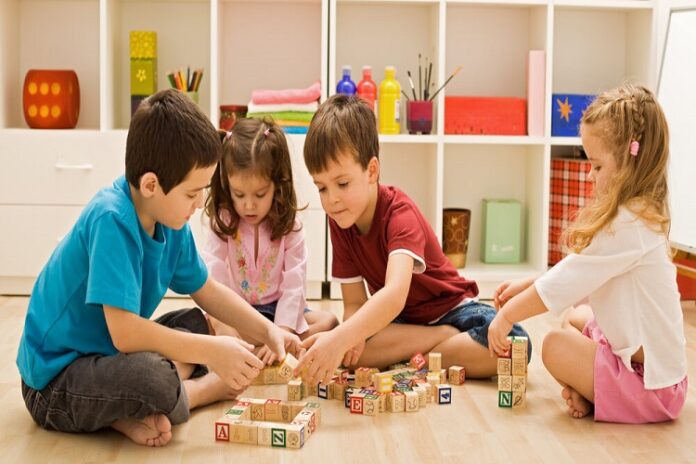Play-based learning refers to an educational approach that integrates play as a central component of the learning process. It recognizes the innate desire of children to explore, experiment, and engage in activities that interest them. Rather than relying solely on traditional teaching methods, play-based learning emphasizes hands-on experiences, active participation, and self-directed discovery. Discover the transformative potential of play-based learning at ILearnUK.com and unlock your child’s limitless creativity and imagination.
The Role of Play in Child Development
Play is crucial in child development as it facilitates learning across various domains. It provides a platform for children to develop their cognitive, social, emotional, and physical skills. Children learn to communicate, negotiate, problem-solve, and regulate emotions through play. It also enhances their creativity, imagination, and resilience. Play-based learning harnesses the natural inclination of children to play and channels it toward educational objectives. Experience the magic of play-based learning by visiting RakuRakuSchool.com today and empower your child with essential skills for the future.
Benefits of Play-Based Learning
Encourages Creativity and Imagination
Play-based learning fosters creativity and imagination by allowing children to explore and express themselves freely. Engaging in imaginative play, such as pretending to be characters or creating stories, stimulates cognitive and emotional development. It encourages divergent thinking, problem-solving, and the ability to generate innovative ideas.
Enhances Cognitive Skills
Through play-based learning, children develop essential cognitive skills. They engage in activities that promote logical reasoning, spatial awareness, mathematical concepts, and language development. Play-based learning offers hands-on experiences, manipulative materials, and interactive games that actively involve children in learning, leading to deeper understanding and knowledge retention.
Develops Social and Emotional Competence
Play-based learning allows children to interact, collaborate, and negotiate with their peers. It cultivates social skills such as sharing, turn-taking, empathy, and conflict resolution. Engaging in cooperative play, children develop a sense of belonging, build relationships, and enhance their emotional intelligence.
Fosters Problem-Solving and Critical Thinking Abilities
Play-based learning nurtures problem-solving and critical-thinking abilities. As children engage in open-ended play scenarios, they encounter challenges and obstacles that require them to think creatively and find solutions. This process enhances their analytical skills, adaptability, and ability to approach problems from different perspectives.
Promotes Physical Development
Play-based learning integrates physical activities that promote gross and fine motor skills. Play-based activities contribute to children’s physical development, whether running, jumping, climbing, or manipulating objects. It improves their coordination, strength, balance, and spatial awareness, laying a foundation for a healthy lifestyle.
Implementing Play-Based Learning in Educational Settings
Play-Based Learning in Early Childhood Education
Early childhood education is an ideal stage to implement play-based learning. Preschools and kindergartens utilize play as a fundamental approach to facilitate children’s holistic development. Play-based learning in early childhood education involves structured and unstructured play activities guided by educators who create supportive environments and facilitate learning experiences aligned with curriculum goals.
Play-Based Learning in Primary and Secondary Education
While play-based learning is often associated with early childhood, its principles can also be applied in primary and secondary education. Educators can incorporate game-based, project-based, and interactive simulations to make the learning experience more engaging and effective. By leveraging technology and innovative teaching strategies, play-based learning can be integrated into various subjects and disciplines.
Challenges and Misconceptions of Play-Based Learning
Despite its numerous benefits, play-based learning faces certain challenges and misconceptions. Some critics argue that play-based learning is too unstructured and lacks academic rigour. However, research has shown that play-based learning can be intentionally designed to align with educational objectives and standards. It requires skilled educators who balance free play and guided learning, ensuring that play activities are purposeful and scaffolded to promote learning outcomes.
Successful Examples of Play-Based Learning Programs
Several successful examples of play-based learning programs exist worldwide. For instance, the Reggio Emilia approach in Italy emphasizes child-led, project-based learning, where teachers act as facilitators and co-learners. Finland’s educational system also incorporates play-based learning, focusing on holistic development and minimizing early academic pressure. These examples highlight the effectiveness and positive impact of play-based learning in diverse cultural and educational contexts.
The Future of Play-Based Learning
Play-based learning is expected to gain even more prominence in education as we move forward. Its potential to engage learners, foster creativity, and develop essential skills aligns with the needs of the 21st-century workforce. With advancements in technology, virtual reality, and gamification, play-based learning will continue to evolve, offering new possibilities for immersive and personalized learning experiences.
Conclusion
Play-based learning holds immense power in shaping the educational landscape. By integrating play into the learning process, children can actively participate, explore their interests, and develop various skills. From enhancing cognitive abilities to fostering social-emotional competence, play-based learning provides a holistic and enjoyable approach to education. As educators and parents embrace this approach, they unlock the potential of every child to become lifelong learners and thrive in a rapidly changing world. Give your child the gift of joyful learning by getting tips and ideas from EduCity1713.com, where play is the key to unlocking their full academic potential.









